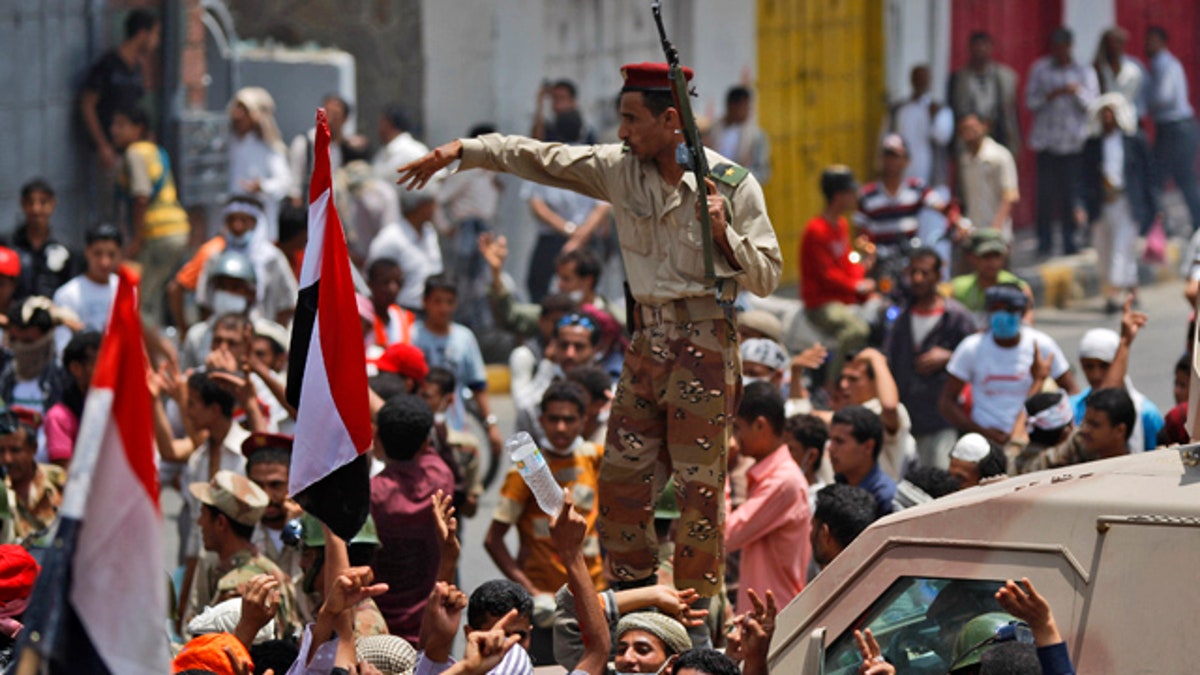
April 7: A Yemeni army officer gestures to anti-government protesters attending a demonstration demanding the resignation of Yemeni President Ali Abdullah Saleh in Taiz, Yemen. (AP)
Two people were killed, and 25 others wounded, after gunfire erupted during protests in the southern Yemeni city of Taiz, hospital sources told Reuters. Nearly 200 were hurt by tear gas inhalation.
This happened as hundreds of thousands of Yemenis converged in the capital for rival demonstrations.
Police and army units were deployed in Sanaa to prevent any friction between the two sides. More than 120 people have been killed since Yemen's protests calling for the removal of Saleh began on Feb. 11, inspired by popular uprisings in Tunisia and Egypt.
Addressing tens of thousands of supporters, President Ali Abdullah Saleh rejected a mediation offer from the six-nation Gulf Cooperation Council that calls on him to hand over power to his deputy in return for immunity from prosecution for him and his family. He lashed out at Qatar for propagating the proposal, as well as for the Qatar-based Al-Jazeera network's coverage of the unrest in his country.
"We derive our authority and legitimacy from you and not from Qatar's or other officials or from what Al-Jazeera says," Saleh said.
The demonstration in favor of Saleh's ouster appeared to be larger. Hammoud al-Hetar, who resigned as Yemen's religious endowments and guidance minister last month, told the crowd before noon prayer that the youth revolution is peaceful with the aim to "establish a civil state that respects human rights, observes equal citizens' rights."
Al-Hetar disputed the government's contention that Yemen's branch of Al Qaeda would control the country if the president stepped down. He claimed the terrorist group's presence in the country "is less than 10 percent of what the government media used to portray it."
"The threats against Al Qaeda have been exaggerated by the government media because the officials want to get money in the name of fighting terrorism," he said.
Al-Hetar said that the coming government "rejects terrorism and extremism and will strongly fight it while establishing better relations with all the countries and respect international laws and treaties."
Yemen is wracked by a tribal rebellion in the north, a separatist movement in the south and the presence of an Al Qaeda affiliate operating in the remote mountainous hinterlands. Saleh, Yemen's leader for the last 30 years, has been a U.S. ally in the fight against Al Qaeda, but there are signs he is losing American support.
The president has offered to step down at the end of this year if a transfer of power acceptable to him is reached. But the opposition fears he is just stalling for time.
The Associated Press contributed to this report.
